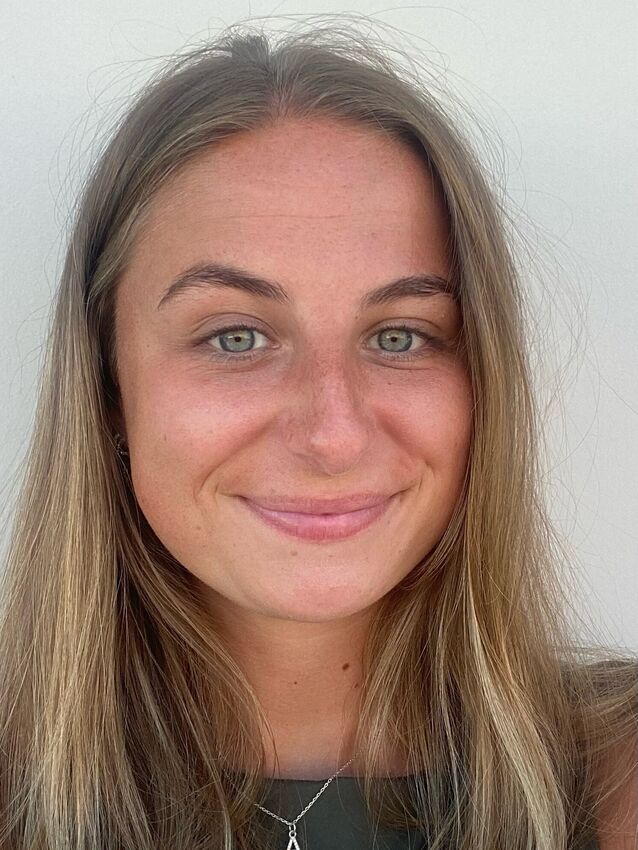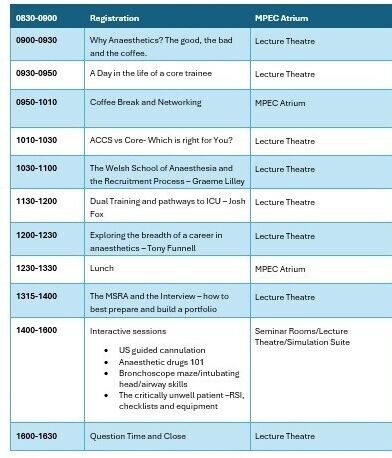Recruitment
A Career in Anaesthesia
Anaesthetists form the largest NHS hospital speciality. They are doctors who specialise in providing anaesthesia for surgical procedures, perioperative and critical care to many hospital patients and are involved in acute and chronic pain management. In addition to roles as general Anaesthetists, there are opportunities to specialise in Intensive Care Medicine or other sub-specialities such as Obstetrics, Paediatrics and Cardiac and many more. Other specialist roles can include Pre-hospital and Transfer medicine, running Perioperative medicine clinics and non-clinical roles in teaching, research or management.
The Royal College of Anaesthetists has further information about a career in anaesthesia here - RCoA Career in Anaesthesia
Recruitment to Anaesthesia Training
Anaesthesia is currently an “uncoupled” training program, meaning that there are two points of entry to training: at CT1 and at ST4. The recruitment to each differs in format to some extent. Eligibility for recruitment to each stage of training can be found on the Anaesthetic National Recruitment Office website
CT1 Recruitment
Multiple Specialty Recruitment Assessment (MSRA) is used for shortlisting, as it is for many other specialties including general practice, radiology, emergency medicine, core surgical training and more. MSRA is a 170-minute examination paper consisting of clinical problem solving and professional dilemmas. Further information and a practice paper can be found here: MSRA Information There is also a specific MSRA section, including other resources recommended by recent applicants further down this page.
In anaesthesia, we use MSRA to shortlist candidates for interview, which is necessary due to the high numbers of applicants for our speciality at present. There is no “cut-off’ score and instead the highest scoring candidates will be offered an interview slot. If a high scoring candidate subsequently declines their interview slot, this will be offered to the next highest scoring candidate so that all interview slots are filled. Following successful interview (meeting the appointability threshold), a processed MSRA score will be added to the interview score, contributing 15% of the total recruitment score.
CT1 interview follows shortlisting and consists of a two-part online interview process: a clinical interview and a general interview, each being 15 minutes long. There are two interviewers per station. Our interviewers are consultants, specialist doctors or ST7 trainees with an interest in training and education, who have received training and guidance on the interview process and scoring.
Scoring across the two interview stations are as follows:
• Clinical: 15 marks per assessor, 30 overall + Global Rating Score from both assessors (2 x 10).
• General: 15 marks per assessor, 30 overall + Global Rating Score from both assessors (2 x 10).
Applicants are scored out of an overall total of 100. To be deemed successful at interview, they must score 60 out of 100.
For further information about scoring, including the scoring matrix and guidance for scoring in each of the domains, please refer to the Anaesthetic National Recruitment Office website: ANRO
ST4 Recruitment
Verified self-assessment is used for shortlisting for anaesthetic ST4 recruitment. This involves submitting a self-score across 10 domains and then supplying evidence to support these scores. The self-assessment criteria is reviewed and updated annually in response to feedback and current data and can be found on the ANRO website here: ST4 Self-Assessment
Comprehensive advice on completion of self-assessment can be found here: Self-Assessment advice
A maximum score of 50 points can be awarded for the self-assessment criteria, plus an additional 5 points for “portfolio organisation”, meaning that candidates will receive an overall self-assessment score out of 55. This score can be used for shortlisting if necessary. Although there is no “cut-off” score, the highest scoring candidates will be offered an interview slot (it is worth noting that in recent recruitment rounds, all ST4 applicants have been offered an interview slot irrespective of self-assessment score). This score out of 55 is added to the interview score (out 100), the result being overall recruitment score which will define ranking, hence self-assessment contributes around 35% of overall recruitment score.
ST4 interview follows self-assessment submission and consists of a two-part online interview process: a clinical interview and a general interview, each being 15 minutes long. There are two interviewers per station. Our interviewers are consultant anaesthetists with an interest in training and education, who have received training and guidance on the interview process and scoring.
Scoring across the two interview stations are as follows:
• Clinical: 15 marks per assessor, 30 overall + Global Rating Score from both assessors (2 x 10).
• General: 15 marks per assessor, 30 overall + Global Rating Score from both assessors (2 x 10).
Applicants are scored out of an overall total of 100. To be deemed successful at interview, they must score 60 out of 100.
For further information about scoring, including the scoring matrix and guidance for scoring in each of the domains, please refer to the Anaesthetic National Recruitment Office website: ANRO
If you have any specific queries about recruitment, please contact the Welsh School of Anaesthesia recruitment lead, Dr Graeme Lilley at lilleytpd@gmail.com.
Multiple Specialty Recruitment Assessment (MSRA)
The MSRA is a computer-based exam used to determine invitation to interview for Anaesthetics Core Training and ACCS. Your score will then also contribute 15% of the total score determining allocation of offers, with the remaining 85% coming from the interview.
Useful Resources for MSRA preparation can be found on the following websites:
Foundation Trainee Blog - How to secure a place in Core Anaesthesia training!
This blog, written by Dr Anna Grundy, a Foundation Year 1 Doctor in West Wales, will give an insight into life as an anaesthetist, the application process and how to maximise your chances of success! Keep checking back here for updates over the next few months!

A PEEP into Anaesthesia
This new one day course for 2024/2025 aims to provide insight into the world of Anaesthesia/ICM for foundation doctors and anyone interested in entering training. The interactive and highly informative day is supported by experienced faculty made up of current trainees, consultants and School of Anaesthesia leads. It is held in the MEPA centre at the Princess of Wales hospital, Bridgend. The course was run in December 24 and March 25 with a future date planned for September 25.
Areas covered include
- A day in the life of an Anaesthetic trainee
- The Recruitment process
- Developing a competitive application
- Anaesthesia/ACCS
- FICM
- Interactive practical sessions
Contacts for future dates :
Harriet.White3@wales.nhs.uk
Naomi.Jordan@wales.nhs.uk









